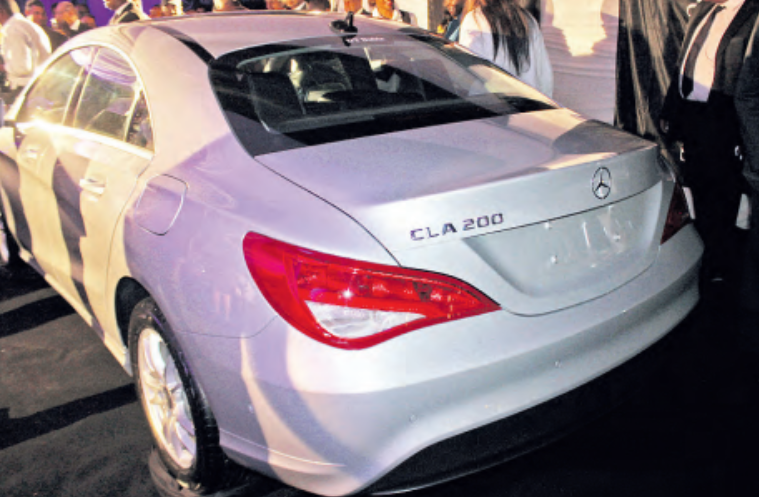
Monthly new car sales in Kenya dropped by 2.7 per cent in May, the lowest so far this year, as dealers navigated a challenging business environment coupled with reduced government uptake.
Kenya Motor Industry Association (KMI) data shows the 11 major dealers of new vehicles (zero mileage) sold 988 units from the different showrooms across the country, down from 1,015 units in April.
This was a further drop from 1,202 vehicles sold in March which has recorded the best performance so far this year, with Completely Knocked Down units accounting for the biggest percentage of sale.
These are vehicles that are imported as a set of disassembled parts and assembled at a local plant designated or owned by the dealers, with some exported to the regional markets albeit in low numbers.
In January and February, dealers in the country sold 1,008 and 1,088, respectively. May sales however remain higher compared to same period last year when a total of 958 units were sold.
Dealers sold a total of 5, 301 for the year to May compared to 4,154 units same period last year, a 27.6 per cent increase.
This year’s month-on-month drop comes despite a drop in interest rates on bank loans, which have continuously dropped from 13 per cent in June last year, to 9.75 per cent this month, as Central Bank of Kenya sought to stimulate lending to the private sector.
CBK on June 10 said there was scope for a further easing of the monetary policy stance to augment the previous policy actions aimed at stimulating lending by banks to the private sector and supporting economic activity, while ensuring inflationary expectations remain firmly anchored, and the exchange rate remains stable.
Therefore, CBK’s decision-making organ, which is the Monetary Policy Committee, decided to lower the Central Bank Rate (CBR) by 25 basis points to 9.75 percent from 10.00 per cent in April this year.
“Growth in commercial bank lending to the private sector stood at 2.0 per cent in May 2025 compared to 0.4 per cent in April, and -2.9 percent in January 2025. This reflects improved demand in line with the declining lending interest rates,” CBK governor Kamau Thugge said.
Average commercial banks’ lending rates declined to 15.4 per cent in May 2025, from 15.7 per cent in April and 17.2 per cent in November 2024, with asset financing by banks being a major driver of new vehicles uptake mainly by companies.
A recent slow-down in government leasing programme and challenging business environment have however been blamed for the low uptake of new cars.
Pending bills owed to the private sector by government have also affected cash flow for the private sector, causing delays in execution of works thus affecting procurement of new project vehicles, according to market leader Isuzu, which accounts for 48.4 per cent of the total new car sales in Kenya.
“We see construction beginning to pick and demand for raw materials such as sand cement and general construction materials beginning to pick and this could hold in 2025,” Isuzu East Africa managing director, Rita Kavashe, said.
During the month under review, trucks, buses and pickups dominated the vehicle types being sold, reflecting sustained activities in construction, transport, agriculture and transport sectors.
Year to May, dealers in Kenya sold a total of 2,140 trucks, 1,212 pickups, 1,007 buses and 264 prime movers.
The CEOs Survey and Market Perceptions Survey conducted in May 2025 by CBK revealed sustained optimism about business activity and economic growth prospects for the next 12 months.
“The optimism was attributed to the stable macroeconomic environment, improved agricultural production supported by favourable weather conditions and continued decline in interest rates. Nevertheless, respondents expressed concerns about subdued consumer demand, high cost of doing business, and increased global uncertainties attributed to geopolitical and trade tensions,” Thugge said.
Government vehicle leasing is expected top pick in the financial year starting July 1, with Treasury allocating a substantial amount for leasing by security agencies.
“I have proposed an additional allocation of Sh10 billion to cater for leasing of police motor vehicles and Sh3.6 billion for police modernisation programme,” Treasury CS John Mbadi said during his budget speech on June 12.
Kenya however remains a major importer of second-hand cars which account for more than 85 per cent of vehicles on the country’s roads.
The units are mainly coming from Japan, which dominates the Kenyan second-hand car market with more than 80 per cent share.
Other sources are United Arab Emirates, United Kingdom, Singapore and South Africa.
These units are cheaper, averaging between Sh800,000 and Sh1.5 million for the low-capacity units, compared to new cars whose starting price is about Sh2.5 million.














